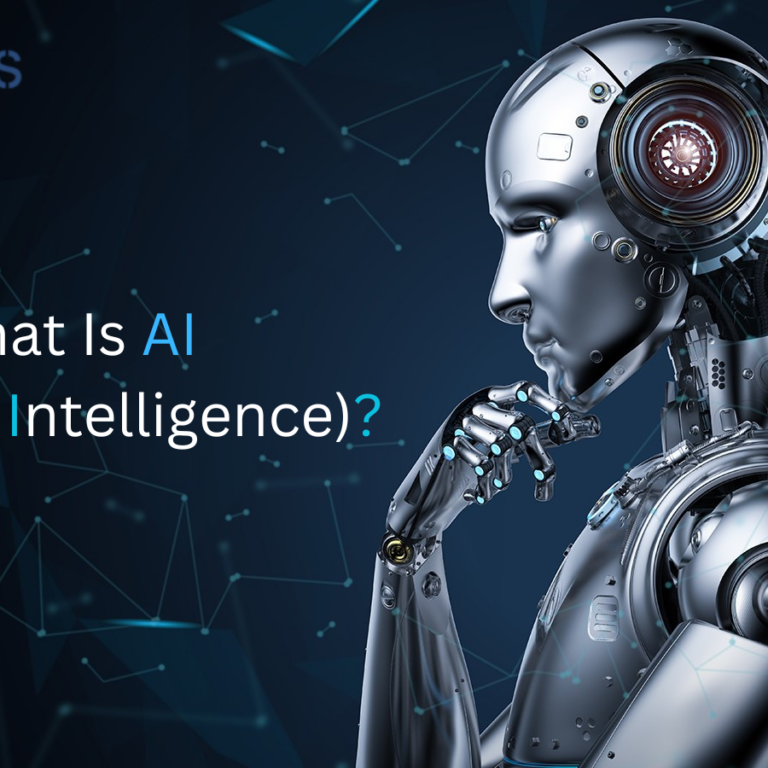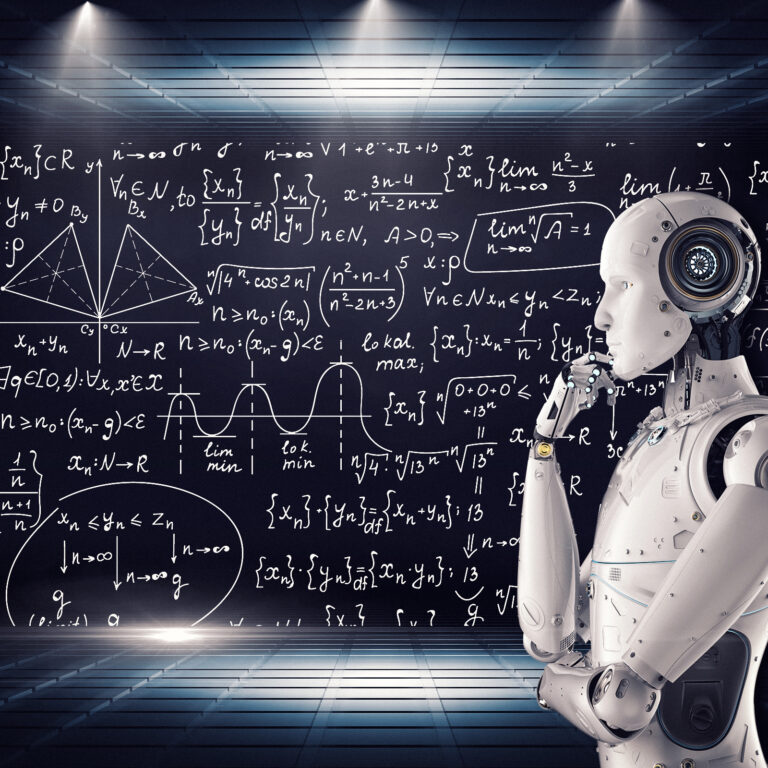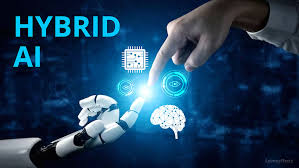Artificial intelligence (AI) continues to evolve at a rapid pace, fundamentally transforming industries and influencing how businesses and individuals operate. As we approach 2025, several key trends stand out, offering insight into the future of AI and its expansive impact on the global economy.

Mainstream AI Adoption
In 2025, AI-powered tools are set to become an essential part of daily operations across industries. Companies are leveraging AI to streamline workflows, enhance decision-making, and create more personalized customer experiences. This mainstream adoption allows businesses to remain competitive in a fast-paced digital world while reducing costs and improving efficiency.
How Businesses Are Adopting AI
Businesses are embracing AI technologies such as predictive analytics, machine learning algorithms, and automation platforms. These tools enable organizations to make data-driven decisions, uncover market trends, and optimize resource allocation.
Benefits of Mainstream Adoption
- Increased Efficiency: Automated systems can handle repetitive tasks, allowing human workers to focus on strategic initiatives.
- Improved Customer Satisfaction: Personalized interactions and faster response times create better user experiences.
- Cost Savings: AI solutions reduce the need for manual labor and minimize errors, leading to significant cost reductions.
Advancements in Automation
Automation driven by AI will redefine industries such as manufacturing, logistics, and healthcare. By incorporating machine learning and robotics, businesses can perform complex tasks with greater speed and accuracy.
Key Developments in Automation
- Smart Factories: Manufacturing facilities equipped with AI-driven machinery will optimize production lines, reduce waste, and increase output.
- Autonomous Vehicles: Self-driving cars and drones will enhance logistics, improving delivery times and reducing transportation costs.
- AI in Healthcare: Automated diagnostic tools and robotic surgery systems will revolutionize patient care, offering precise and timely interventions.
Implications for the Workforce
While automation replaces certain manual tasks, it also creates opportunities for upskilling. Workers can transition into roles that require creativity, critical thinking, and problem-solving skills.
Revolutionizing Customer Interactions
Natural Language Processing (NLP) advancements are set to revolutionize how businesses interact with customers. AI-powered virtual assistants and chatbots will become increasingly sophisticated, providing more natural and personalized experiences.
Enhancements in NLP Technology
- Context-Aware Systems: AI chatbots will understand context better, enabling more accurate and relevant responses.
- Multilingual Capabilities: NLP models will support multiple languages, broadening accessibility for global audiences.
- Voice Recognition: Improved voice recognition systems will make interactions seamless across devices and platforms.
Impact on Customer Service
By using conversational AI, businesses can:
- Reduce response times for customer inquiries.
- Offer 24/7 support without increasing costs.
- Provide personalized recommendations based on user behavior.
AI in Cybersecurity
As the digital landscape evolves, cybersecurity threats are becoming more sophisticated. AI plays a crucial role in protecting businesses and individuals from cyberattacks.
AI-Powered Cybersecurity Solutions
- Threat Detection: AI algorithms can identify anomalies and potential threats in real-time, preventing data breaches.
- Predictive Analysis: Machine learning models predict vulnerabilities and recommend proactive measures to secure systems.
- Incident Response: Automated tools quickly contain and mitigate the impact of cyberattacks, reducing downtime and data loss.
Benefits for Businesses
Integrating AI into cybersecurity strategies ensures that organizations remain resilient against evolving threats, safeguarding sensitive information and maintaining customer trust.
Transformative Impact on Healthcare
AI continues to revolutionize the healthcare sector, offering innovative solutions for diagnosis, treatment, and patient care.
Key Applications of AI in Healthcare
- Predictive Analytics: AI analyzes patient data to predict disease progression and recommend preventative measures.
- Personalized Medicine: Machine learning models tailor treatments based on individual genetic profiles.
- Enhanced Diagnostics: AI-powered tools improve the accuracy and speed of diagnosing medical conditions.
Benefits for Patients and Providers
- Improved Outcomes: Early detection and personalized treatment plans lead to better patient outcomes.
- Cost-Effective Solutions: AI reduces healthcare costs by streamlining operations and minimizing errors.
- Access to Care: Telemedicine platforms powered by AI enhance accessibility for remote and underserved populations.
Personalized Education Through AI
The education sector is witnessing a significant transformation driven by AI, making learning more inclusive and efficient.
AI in Adaptive Learning
- Customized Learning Paths: AI tailors educational content to individual student needs, enhancing comprehension.
- Real-Time Feedback: AI systems provide instant feedback, enabling students to address gaps in understanding.
- Virtual Tutors: AI-powered tutors offer one-on-one assistance, making education more personalized.
Future of Learning
AI-driven education platforms will bridge gaps in traditional learning methods, equipping students with the skills needed to thrive in a digital-first economy.
Redefining E-Commerce Experiences
E-commerce is set to undergo a transformation with AI technologies, offering hyper-personalized shopping experiences and operational efficiencies.
AI in E-Commerce
- Recommendation Engines: AI analyzes user behavior to suggest products tailored to individual preferences.
- Inventory Management: Predictive analytics optimize stock levels, reducing waste and improving availability.
- Customer Support: Chatbots handle queries efficiently, enhancing user satisfaction.
Impact on the Retail Sector
AI empowers retailers to:
- Increase conversion rates through personalized marketing campaigns.
- Enhance user experiences with targeted product recommendations.
- Streamline supply chains for greater operational efficiency.
Advancements in Autonomous Vehicles
Autonomous vehicles are becoming a reality, thanks to advancements in AI technologies. Self-driving cars and drones are poised to transform transportation and logistics.
Key Developments in Autonomous Technology
- Enhanced Navigation Systems: AI algorithms improve route optimization and safety.
- Fleet Management: Businesses can monitor and control vehicle fleets in real-time.
- Environmental Benefits: Reduced emissions from efficient transportation systems contribute to sustainability goals.
Future Outlook
As autonomous vehicles become more accessible, they will revolutionize urban mobility, logistics, and personal transportation, creating new opportunities for businesses and individuals.
Emphasis on AI Ethics and Governance
As AI adoption grows, so do concerns about its ethical implications. Addressing these challenges is critical to ensuring responsible development and use of AI technologies.
Ethical Considerations
- Data Privacy: Ensuring user data is protected and used responsibly.
- Algorithmic Bias: Developing unbiased models to promote fairness and inclusivity.
- Accountability: Establishing frameworks to hold developers and organizations accountable for AI outcomes.
Role of Governance
Governments and organizations are creating guidelines to regulate AI applications, fostering trust among users and stakeholders while minimizing risks.
How Endevsol Supports Businesses in the AI Revolution
At Endevsol, we are committed to helping businesses harness the power of AI to achieve their goals.
By partnering with Endevsol, you can stay ahead in the AI revolution and unlock new opportunities for growth and innovation. Contact us today to learn more about how we can support your journey into the future of AI.






